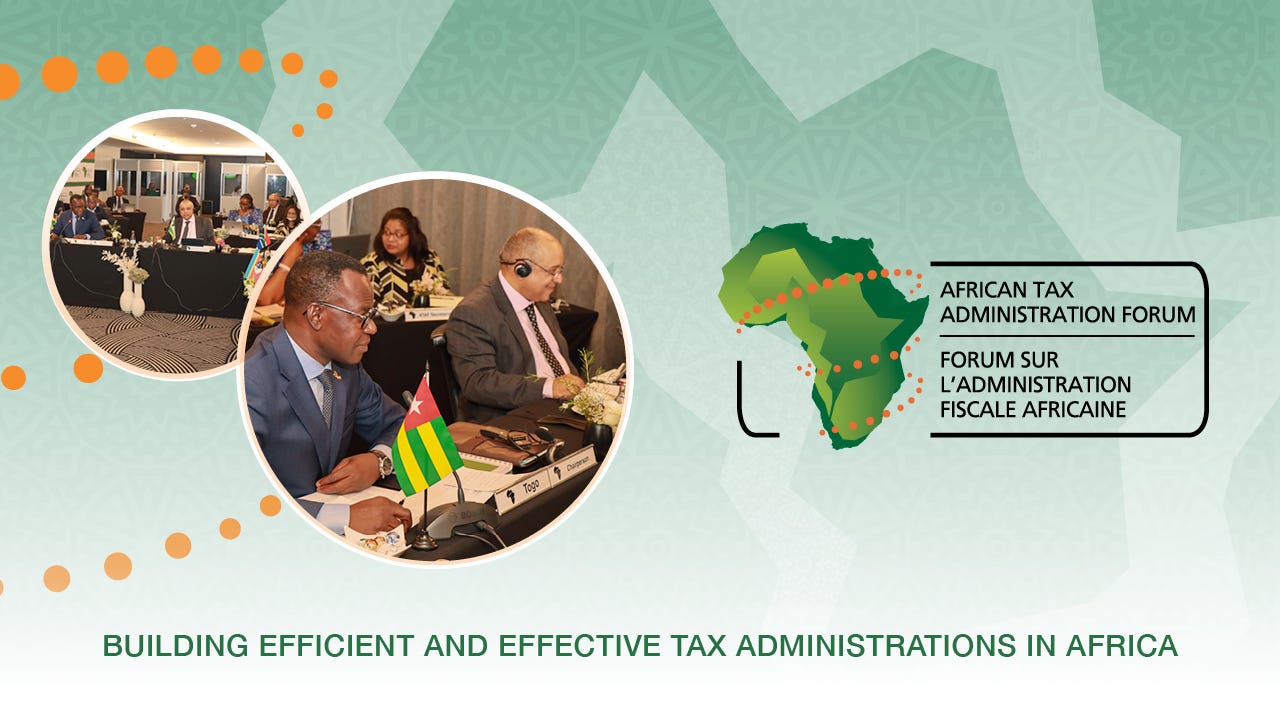ATAF's Cross-Border Taxation Missions Yield Significant Results in 2023
A remarkable 73% of these missions involved real-time audits, enabling member countries to streamline their tax systems and ensure adherence to international tax standards.
LILONGWE, Malawi- In 2023, the African Tax Administration Forum (ATAF) demonstrated its commitment to supporting member countries in international tax matters through a series of country programs.
These initiatives included conducting 52 cross-border taxation missions across key sectors, such as agriculture, oil, mining, and telecommunications, benefiting 12 countries: Botswana, Eswatini, Ghana, Lesotho, Mauritius, Mozambique, Namibia, Rwanda, Tanzania, Uganda, Zambia, and Zimbabwe.
The missions undertaken by ATAF primarily focused on enhancing tax compliance mechanisms within member countries, with a significant emphasis on real-time audits.
A remarkable 73% of these missions involved real-time audits, enabling member countries to streamline their tax systems and ensure adherence to international tax standards.
These collaborative efforts and real-time audits have yielded substantial results. From January to August 2023, the audit support missions conducted by ATAF resulted in additional tax assessments totalling USD 39.2 million.
This achievement underscores the positive impact of ATAF's initiatives in helping member countries optimize their tax collection processes and enhance revenue generation.
To gain further insights into ATAF's accomplishments and future plans, AfricaBrief Editor-in-Chief, Winston Mwale, recently engaged in a conversation with Ziggy Fikiri Nshiyimana, ATAF's Marketing and Communications Specialist.
The interview with Nshiyimana sheds light on ATAF's strategies, successes, and ongoing efforts to bolster international tax compliance and revenue collection among member countries.
Winston: What are the key findings from the Cross-Border Taxation missions?
Ziggy: Our understanding is that this question seeks to establish the key findings from the country programmes in respect of cross-border taxation. If this understanding is correct, our response will be broad as the issues are varied and many.
First and foremost, cross-border taxation remains a critical issue for many African countries as the continent continues to attract foreign investments, especially in the key sectors of the economy, for instance, the extractives, agricultural, telecommunication and information technology, energy and construction sectors.
The major players in these sectors are often multinational enterprises (MNEs) who engage in various cross-border transactions some of which create illicit financial flow through artificial profit shifting.
The issues that arise include aggressive transfer pricing schemes by some MNEs, the use of structures that avoid creating a taxable presence in the form of a permanent establishment, abusive tax treaty practices, excessive intra-group loans and the corresponding excessive intra-group interest expense as well as excessive intra-group service fees.
Through our technical assistance, some countries created the necessary technical teams – International Tax/Transfer Pricing Unit to audit these MNEs and our capacity-building efforts are beginning to bear fruits in some of these countries who, with our assistance, have collected over USD1.7 billion additional tax in the past eight years.
However, more still needs to be done as the issues still remain and now a new tax issue has emerged in respect of taxing highly digitalised companies.
Winston: How are the findings from these missions being used to improve tax policies and practices in member countries?
Ziggy: Development of Suggested Approaches for assisting countries to draft their domestic law. Our suggested approaches include:
o Suggested Approach to Drafting Transfer Pricing Legislation.
o Suggested Approach to Drafting Permanent Establishment Legislation.
o Suggested Approach to Drafting Interest deductibility legislation; and
o Suggested Approach to Drafting Digital Services Tax Legislation.
- Development of model Double Taxation Agreement which guides countries on how to negotiate appropriate tax treaty provisions.
- Development of administrative manuals such as Transfer Pricing Audit Manuals.
- The findings are also essential in the design of appropriate country programme deliverables as well as the continental or regional training programmes.
Winston: What are the main benefits of the real-time audits for member countries?
Ziggy: The officials receive practical guidance to progress and finalise transfer pricing audits from the ATAF experts. Further support is provided during the dispute resolution process whenever such arises.
Winston: What are the challenges of conducting real-time audits?
Ziggy: Transfer pricing and international tax audits are challenging due to two broad reasons – the complexity of the issues and the applicable tax rules and limited or lack of information as well as delays in obtaining the appropriate information from MNEs.
Winston: How can ATAF help member countries to overcome these challenges?
Ziggy: ATAF continues to assist countries to address these issues through technical capacity building in transfer pricing and international tax as well as guidance on how to put in place appropriate domestic tax laws to enhance capacities to request information.
This includes guidance on the necessary international tax instruments for enhancing capacity such as advising countries to sign and ratify the ATAF Agreement on Mutual Assistance in Tax Matters (AMATM) and the Multilateral Convention on Mutual Administrative Assistance in Tax Matters (MAAC).




